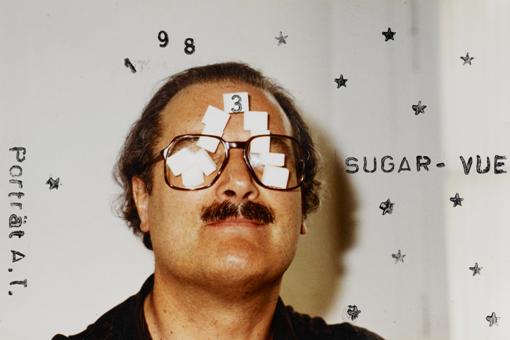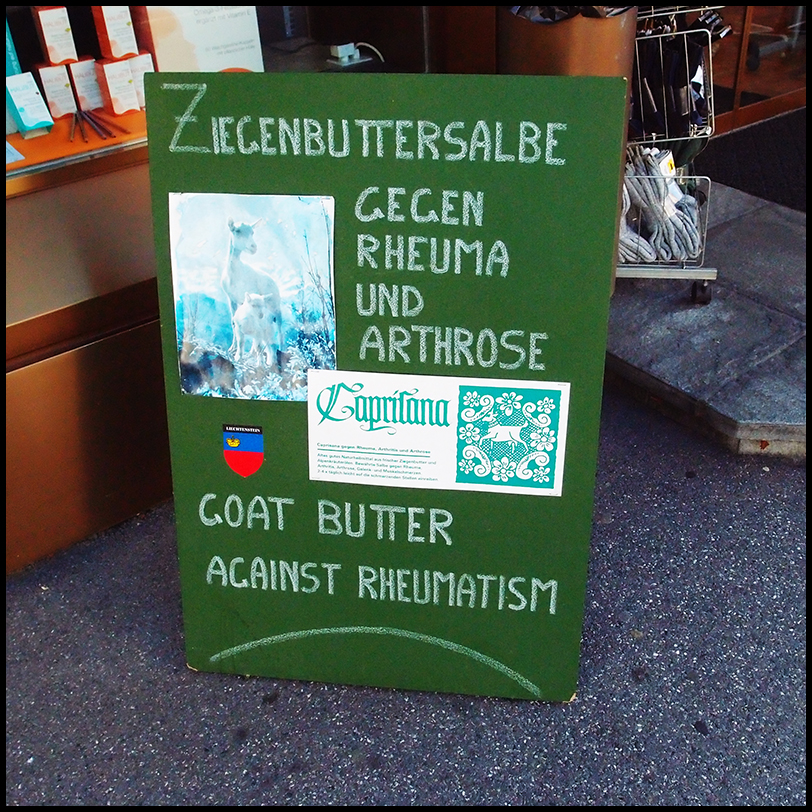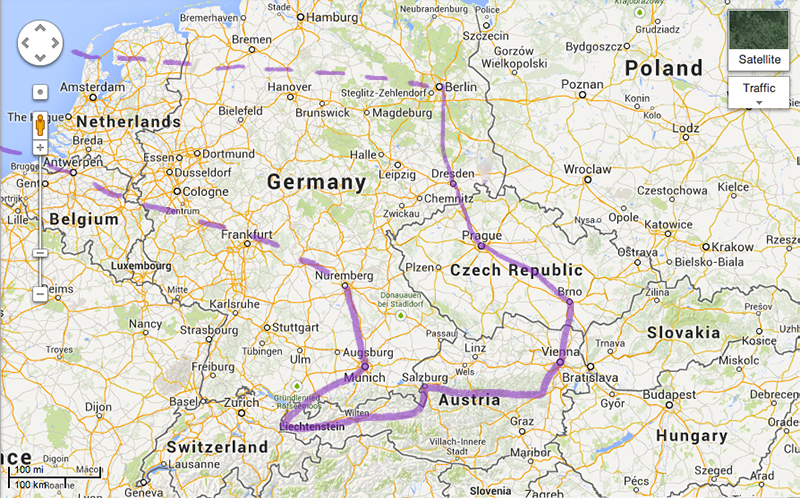-
My one exception to avoiding spending money in Liechtenstein is souvenirs. There’s a WH Smith type shop selling books and…
-
The river Rhine marks the border between Liechtenstein and Switzerland. Most people’s mental image of the river is of its…
-
Next door to the National Museum and Parliament is the Postal Museum. I’m not really interested in stamp collecting, but…
-
Liechtenstein also has a small national history museum. Last time I went it was full of medieval stuff, but they’d…
-
Balzers is my favourite place in Liechtenstein. It’s just a normal town where people live, rather than being a strange…
-
I try to avoid buying anything in Liechtenstein, because it’s so expensive. They have the same chains as Switzerland- Co-Op…
-
Liechtenstein has a surprisingly great state-owned modern art museum. Although it’s expensive at 15 francs entry (essentially the same in…
-
A preview of my travel writing book.
-
When I was in Liechtenstein, I went to the Modern Art museum there. I was really impressed with the quality…
-
In other old photos I’ve dug out recently, here’s some photos of Liechtenstein from last summer. I’m currently writing a…
-
I’ve spent most of the past month travelling around Germany and Austria teaching. It’s for an extra-curricular school programme. You…











